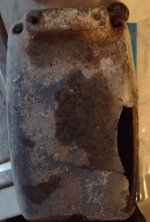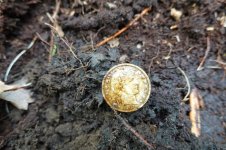swizzle
Sr. Member
Can anyone here give specifics on what to look for and where to start when researching potential caches? Say if you were to start in a state you've never been in and you had only a few weeks to research before the actual hunt. Where would you start? Town clerk? County clerk? Local historian? When you go to a library what questions do you ask? What books do you read? I've heard of people researching diaries. Do libraries have diaries? What do you look for period? I'm very interested in the research aspect of the hunt but would like to know if there is any secrets that could help me. Who to talk to and what questions to ask.  Any info on this would be great. Thanx Jason
Any info on this would be great. Thanx Jason
 Any info on this would be great. Thanx Jason
Any info on this would be great. Thanx Jason






